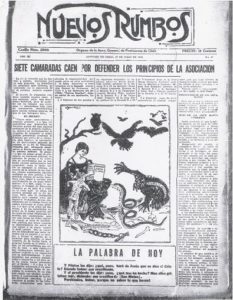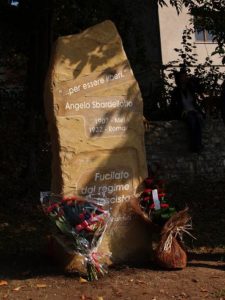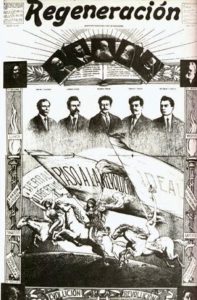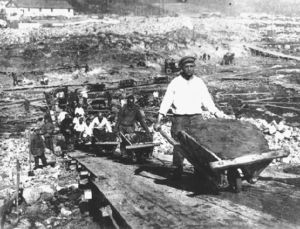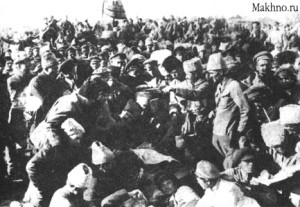El 25 de septiembre de 1919 nace en Mesa (Francia) el anarquista, anarcosindicalista y resistente antifranquista Joaquim Querol Marzá, más conocido como Joaquín de Quiquet , Ximo Querol o Tío Ximo.
Continue reading Biografía: Joaquim Querol Marzá
Tag Archives: 1932
Más allá del Estado y los partidos políticos. Los profesores y el movimiento libertario en la región chilena (1922-1932)
L’ANARCHICO DI MEL
La storia di Angelo Sbardellotto, giovane anarchico fucilato dai Fascisti per aver tentato di assassinare il Duce, che rinunciò all’impresa per non coinvolgere degli innocenti.
Continue reading L’ANARCHICO DI MEL
Cronología de la huella anarquista en la revolución mexicana (1892-1932)
x Guadalupe Rivera
1892 Ricardo Flores Magón es arrestado por dirigir una manifestación estudiantil antigubernamental.
Tenía diecinueve años y estuvo un mes en prisión.
Continue reading Cronología de la huella anarquista en la revolución mexicana (1892-1932)
Nihilism – Voline
NIHILISM n. m. (from Latin nihil, nothing)
1925 — 1934
A deeply rooted and widely spread misunderstanding is closely linked to this word born, 75 years ago, in the Russian literature and passed without being translated (thanks to its Latin origin), into other languages.
Continue reading Nihilism – Voline
“Sovietismo, Anarchismo e Anarchia”
Can we break walls with dialectics? (1.)
The history of the Hungarian workers’ movement after the “II. World War” has been committed to paper almost exclusively by Bolshevik-social democratic Marxists, therefore they regarded all the major manifestations of the class movement as successes of their own party line, while usually they were writing disdainfully about the more radically leftist groups and – beyond leftism – the anti-democratic anarchist-communist groups and phenomena, and called them traitors. But there had been some militants about whom the party-historians had to speak, because, for instance, their activity in the workers’ movement had become inseparable from their literary activity, so it was impossible to remain silent about them.
Continue reading Can we break walls with dialectics? (1.)

